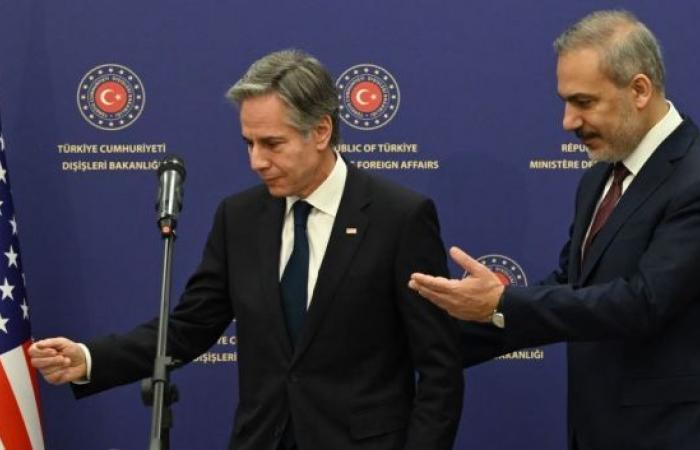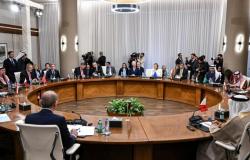US Secretary of State Antony Blinken said on Saturday that his country had established “direct contact” with Hay’at Tahrir el-Sham (HTC), the Islamist group at the head of a coalition that took power in Syria, leading to the fall of Bashar al-Assad.
Turkey, a major player in the conflict in Syria and support of the new authorities, has also reopened its embassy in Damascus after more than 12 years of closure.
Traffic police under the new authorities were deployed on Saturday to the streets of the capital, where municipal workers are cleaning the roads. Most businesses have reopened, including the famous al-Hamidiyé souk in old Damascus, according to AFP correspondents on site.
“Syrians themselves”
Following an 11-day offensive, a coalition of rebel factions led by the radical Islamist group Hayat Tahrir el-Sham (HTC) captured much of the country from government forces on December 8, ending a half-year -century of power of the Assad family.
HTC, led by Abu Mohammad al-Joulani, claims to have broken with jihadism but remains classified as “terrorist” by several Western capitals, including Washington.
“We have been in contact with HTC and other parties,” Blinken told reporters after talks on Syria in Aqaba, Jordan.
He did not provide further details on the circumstances of these exchanges, but when asked if the United States had had a direct link, he replied: “Direct contact, yes.”
Mr. Blinken specified that this contact was notably part of efforts to locate Austin Tice, an American journalist kidnapped in 2012 at the start of the civil war in Syria.
Mr. Blinken was wrapping up a regional tour that took him to Türkiye, Iraq and Jordan, countries neighboring Syria.
In Aqaba, Mr. Blinken participated in discussions bringing together Arab, European and Turkish diplomats which he said would result in a joint statement affirming: “We agreed that the transition process must be led and controlled by the Syrians themselves. themselves and achieve an inclusive and representative government.”
“Peaceful transition”
“The rights of all Syrians, including those of minorities and women, must be respected. Humanitarian aid must reach the people who need it,” he added.
Also present in Jordan, Geir Pedersen, the UN special envoy for Syria, called for work to avoid “the collapse of Syrian institutions”, and the foreign ministers of eight Arab countries to lead a transition ” peaceful”.
Faced with concerns from the international community, the new Prime Minister in charge of the transition until March 1, Mohammad al-Bashir, promised this week a rule of law and to “guarantee the rights of all”.
In Aqaba, Turkish Foreign Minister Hakan Fidan also pleaded in Jordan for an “inclusive” political process to form the next government.
Israeli bombings
Israel, Syria’s southern neighbor, carried out new strikes on “military sites of the former regime” in Damascus and its suburbs, destroying a scientific institute and a “military airport”, according to the Syrian Observatory for Human Rights. man (OSDH).
The strikes also targeted “ballistic missile warehouses” and rocket launchers in Qalamoun, on the outskirts of Damascus, as well as “tunnels” under the mountains, the OSDH added.
These raids aim to “destroy what remains of the military capabilities of the next Syrian army”, according to the Observatory.
With AFP



